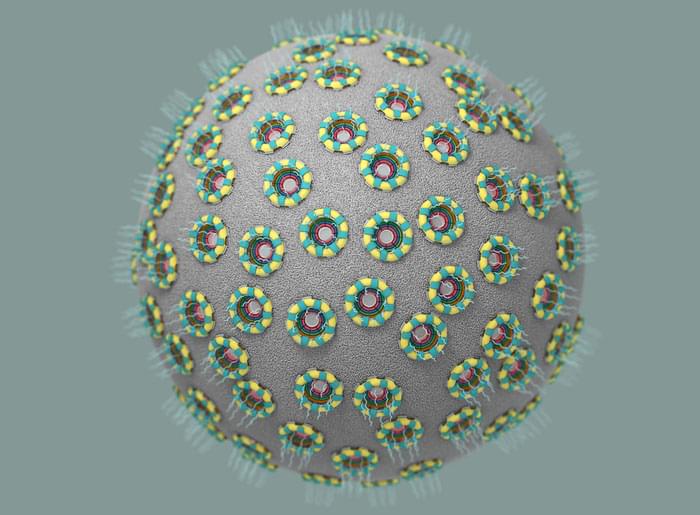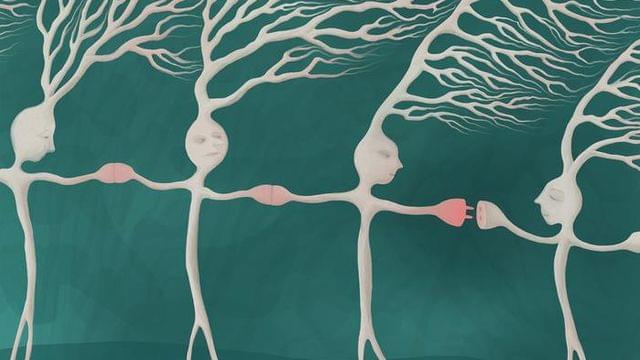
Get the latest international news and world events from around the world.


When we’ll be able to 3D-print organs and who will be able to afford them
To begin the process of bioprinting an organ, doctors typically start with a patient’s own cells. They take a small needle biopsy of an organ or do a minimally invasive surgical procedure that removes a small piece of tissue, “less than half the size of a postage stamp,” Atala said. “By taking this small piece of tissue, we are able to tease cells apart (and) we grow and expand the cells outside the body.”
This growth happens inside a sterile incubator or bioreactor, a pressurized stainless steel vessel that helps the cells stay fed with nutrients – called “media” – the doctors feed them every 24 hours, since cells have their own metabolism, Lewis said. Each cell type has a different media, and the incubator or bioreactor acts as an oven-like device mimicking the internal temperature and oxygenation of the human body, Atala said.
“Then we mix it with this gel, which is like a glue,” Atala said. “Every organ in your body has the cells and the glue that holds it together. Basically, that’s also called ‘extracellular matrix.’”.
Xanadu Photonic Quantum Chip Solves Trillions of Times Faster
Canadian quantum computer company, Xanadu, has used its photonic quantum computer chip, Borealis, to solve a problem in 36 microseconds versus classical supercomputers taking 9,000 years. This is 7,884 trillion times faster. This runtime advantage is more than 50 million times larger than that of earlier photonic demonstrations.
An earlier quantum photonic computer used a static chip. The Borealis optical elements can all be readily programmed.
Borealis is accessible to anyone with an internet connection over Xanadu Cloud, and will also be available via Amazon Braket, the fully managed quantum computing service from AWS.

Decoding a key part of the cell, atom
Whatever you are doing, whether it is driving a car, going for a jog, or even at your laziest, eating chips and watching TV on the couch, there is an entire suite of molecular machinery inside each of your cells hard at work. That machinery, far too small to see with the naked eye or even with many microscopes, creates energy for the cell, manufactures its proteins, makes copies of its DNA, and much more.
Among those pieces of machinery, and one of the most complex, is something known as the nuclear pore complex (NPC). The NPC, which is made of more than 1,000 individual proteins, is an incredibly discriminating gatekeeper for the cell’s nucleus, the membrane-bound region inside a cell that holds that cell’s genetic material. Anything going in or out of the nucleus has to pass through the NPC on its way.
Nuclear pores stud the surface of the cell’s nucleus, controlling what flows in and out of it. (Image: Valerie Altounian)

10 Best Tools for Machine Learning
The will help you find new opportunities to use and further develop your machine learning skills.
Machine learning has proven to be a tool that performs well in a variety of application fields. From educational and training companies to security systems like facial recognition and online transaction prevention, it is used to improve the quality and accuracy of existing techniques.
Choosing the best tools for machine learning and navigating the space of tools for machine learning isn’t as simple as Google searching “machine learning tools”.
There are many factors to consider when choosing a tool for your needs: types of data you’re working with, type of analysis you need to perform, integration with other software packages you’re using, and more.

DARPA Seeking Proposals for ANSR Program to Improve Trustworthy AI; Sandeep Neema Quoted
Defense Advanced Research Projects Agency (DARPA) announced on Friday that the agency is seeking proposals for its Assured Neuro Symbolic Learning and Reasoning (ANSR) program to address the trustworthiness of artificial intelligence and machine learning capabilities. Motivating new thinking and ap.

Synapse Study Explores the “Dark Matter of the Brain”
They are part of the brain of almost every animal species, yet they remain usually invisible even under the electron microscope. “Electrical synapses are like the dark matter of the brain,” says Alexander Borst, director at the MPI for Biological Intelligence, in foundation (i.f). Now a team from his department has taken a closer look at this rarely explored brain component: In the brain of the fruit fly Drosophila, they were able to show that electrical synapses occur in almost all brain areas and can influence the function and stability of individual nerve cells.
Neurons communicate via synapses, small contact points at which chemical messengers transmit a stimulus from one cell to the next. We may remember this from biology class. However, that is not the whole story. In addition to the commonly known chemical synapses, there is a second, little-known type of synapse: the electrical synapse. “Electrical synapses are much rarer and are hard to detect with current methods. That’s why they have hardly been researched so far,” explains Georg Ammer, who has long been fascinated by these hidden cell connections. “In most animal brains, we therefore don’t know even basic things, such as where exactly electrical synapses occur or how they influence brain activity.”
An electrical synapse connects two neurons directly, allowing the electrical current that neurons use to communicate, to flow from one cell to the next without a detour. Except in echinoderms, this particular type of synapse occurs in the brain of every animal species studied so far. “Electrical synapses must therefore have important functions: we just do not know which ones!” says Georg Ammer.


Graphene charge-injection photodetectors with a broader detection bandwidth
Photodetectors, sensors that can detect light or other forms of electromagnetic radiation, are essential components of imaging tools, communication systems, and various other technologies on the market. These sensors work by converting photons (i.e., light particles) into electrical current.
Researchers at Zhejiang University have recently developed a new photodetector that could detect light within a broader bandwidth. Their device, presented in a paper published in Nature Electronics, could be used to develop new and more advanced imaging technologies.
“Our recent project is based on traditional charge-coupled device (CCD) and complementary metal-oxide-semiconductor (CMOS) imaging technologies,” Prof. Yang Xu, one of the researchers who carried out the study, told TechXplore. “Our novel imaging devices combining CCD’s MOS photogate for high sensitivity and CMOS’s independent pixel structure can significantly benefit monolithic integration, performance, and readout.”
Scientists craft living human skin for robots
From action heroes to villainous assassins, biohybrid robots made of both living and artificial materials have been at the center of many sci-fi fantasies, inspiring today’s robotic innovations. It’s still a long way until human-like robots walk among us in our daily lives, but scientists from Japan are bringing us one step closer by crafting living human skin on robots. The method developed, presented June 9 in the journal Matter, not only gave a robotic finger skin-like texture, but also water-repellent and self-healing functions.
“The finger looks slightly ‘sweaty’ straight out of the culture medium,” says first author Shoji Takeuchi, a professor at the University of Tokyo, Japan. “Since the finger is driven by an electric motor, it is also interesting to hear the clicking sounds of the motor in harmony with a finger that looks just like a real one.”
Looking “real” like a human is one of the top priorities for humanoid robots that are often tasked to interact with humans in healthcare and service industries. A human-like appearance can improve communication efficiency and evoke likability. While current silicone skin made for robots can mimic human appearance, it falls short when it comes to delicate textures like wrinkles and lacks skin-specific functions. Attempts at fabricating living skin sheets to cover robots have also had limited success, since it’s challenging to conform them to dynamic objects with uneven surfaces.